Bespoke Cycling bike fit
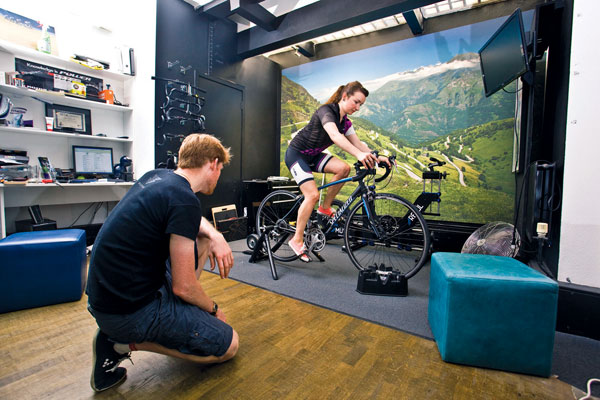
Having a tennis ball pushed into my bottom cheek wasn't what I was expecting during my bike-fit at Bespoke Cycling, but it was just one of the tricks up Ben Hallam's sleeve to get me into a more efficient position on my bike.
And with his racing family pedigree and the fact he came very highly recommended by people who make it their business to know about such things, I thought I'd better let him get on with it.
I'd booked an appointment for a bike-fit with Bespoke because I was getting an increasing amount of niggly pains in the front of my hips, my lower back and my knees, and pins and needles in my left hand, after riding for an hour or so.
None was hugely worrying on its own, but collectively they added up, and with a place in the RideLondon 100, I wanted to be in the best possible condition. So if Ben could help alleviate the niggles and at the same time improve my riding efficiency, I'd be happy. I also wanted cleats and pedals fitting properly, having previously had a bad experience with a misaligned set.
I took my bog-standard but much-loved Specialized Dolce along to Bespoke's swanky showroom on East London's Farringdon Road and tried not to be too envious of all the glistening Parlees, Pinarellos and Colnagos on display.
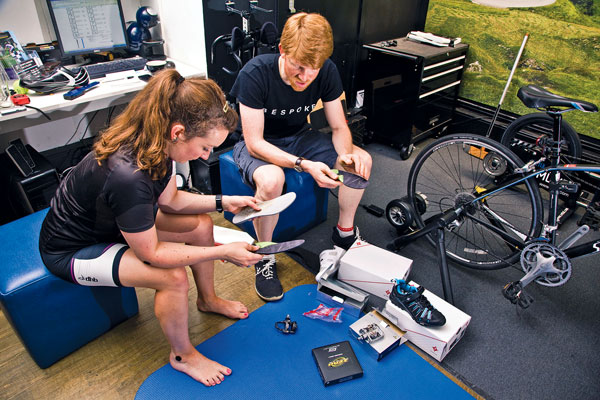
Finding the ideal footbed
Ben assured me it wasn't obligatory to have spent thousands on your bike to benefit from a fit, and said the majority of his clients were sportive riders who were relatively new to spending extended hours in the saddle. Some people he sees are totally new to cycling; others are top riders such as Germain Burton, a member of the Junior Olympic Development Squad.
Get The Leadout Newsletter
The latest race content, interviews, features, reviews and expert buying guides, direct to your inbox!
Our session began with a chat to discuss my injury history, my riding goals and the pain I experience during cycling. Then, with my bike set up in the turbo, I was introduced to Ben's pièce de résistance, the 3D motion capture system.

'No, it won't cost one of those'
With eight motion sensors stuck to key anatomical points on my body - including ankle, knee and elbow - they communicated with the base unit a couple of metres away and, as I pedalled, Ben was able to capture my existing riding position and record my current body angles, posture and pedalling technique down to the nth degree.
The accuracy was far better than using a tape measure, and provided a base picture to be compared at the end of the fitting.
He instantly highlighted a few areas to be worked on: my hips were dropping to the right, I was riding toe-down at the top of the pedal stroke, and I was over- using my hip flexors, plus my bars were wider than my shoulders and my saddle was deformed from my hips dropping to the right.
The main appeal in coming to Bespoke is the emphasis Ben places on adapting your body, rather than tweaking the bike.
He quoted a finding from a journal from the Nineties which still holds true today: the bike is adjustable but the body is adaptable - so the body can adapt to a poor fit, which is why it's crucial to find a functionally efficient position for the body, then adjust the bike to work with the body, not the other way round.
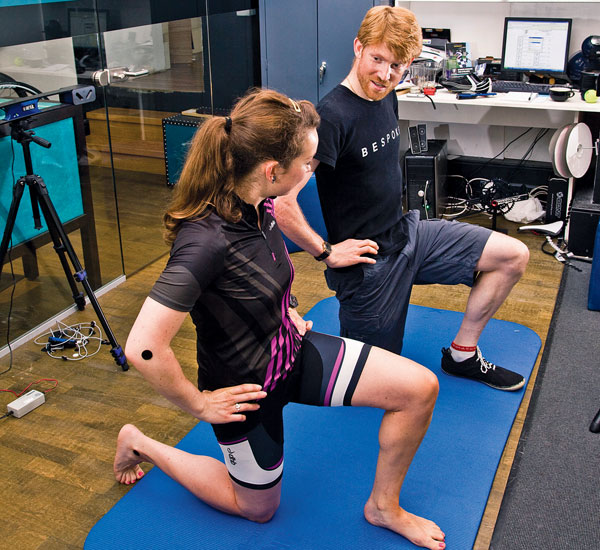
Flexibility is fundamental
Let the body rule the fit
Following this logic, we then spent the next hour or so of the fit assessing my body's alignment and learning exercises to help with my flexibility and biomechanics, and this is where the tennis ball came in. Ben's prompt but thorough assessment told him I had a tight right piriformis (one of the muscles in your glutes), which could be contributing to my lower back pain.
The pressure of the tennis ball created a release of pressure through me. It was certainly something I'd replicate at home.
So that I wasn't bombarded with exercises I'd either forget how to do or not find time to do, Ben focused on four key practices which would only take five to 10 minutes a day to do. These included a ‘dead bug' exercise to strengthen my lower abs and core, helping ease my lower back pain, and a method to strengthen my glutes, meaning I'd be more efficient when pedalling by using them instead of my hamstrings.
Ben inspired confidence in his ability to quickly get to the root of a niggle, and it was fascinating learning more about the importance of biomechanics and how one seemingly unrelated thing impacted on another.
We moved on to the shoes and pedals, and Ben presented me with a range of options. I'd an inkling that he knew which set-up was ideal for me from the outset. I was more than happy to follow his guidance, and with the addition of a footbed he quickly had me comfortably set up in a pair of Specialized Torch shoes, on Shimano SPD SL pedals.
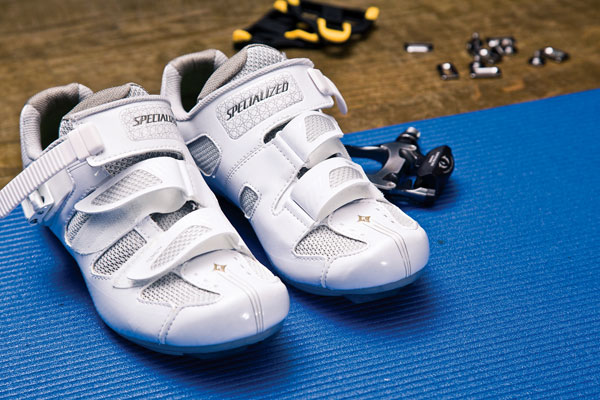
Using the data from earlier, Ben used the Retul Muve jig to adjust my position, which would be replicated on my bike. We spent time working on pedal technique and the importance of keeping ankles relaxed. Next, Ben fitted new handlebars and saddle to my bike. The handlebar hoods matched the width of my shoulders so I didn't have to overreach, which had put pressure on my pecs and restricted my chest; the new saddle fitted me better too.
Relieving strain
In my new position, my knees and ankles were aligned (previously I'd been making an A-frame with my legs) thanks to the narrower pedals and cleat position. I could easily reach the levers, and Ben moved my saddle up and forwards so that my hips would open more.
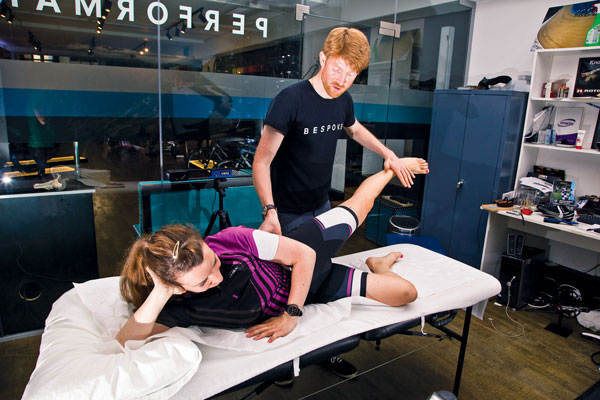
Physical assessment first
He also advised me to hold my core stronger and not put my weight on the palms of my hands, as this was causing the pins and needles. Lastly, Ben had improved the angle of my back to 48° - over time he wanted to evolve that down to 45°, but didn't want to push me into it straightaway. He noted all the adjustments and new measurements down, then emailed them to me in a clear PDF so that when I do get round to buying that new Parlee, I can have it fitted to me properly.
As I rode away from Bespoke with my new set-up and a raft of information, my mind was swimming with techniques and alignments and efficiencies. By the time I got home, all the information was starting to sink in and I was enjoying the greater awareness I had of my position on my bike. The next day, I felt like I flew to work.
And now, whenever I come to a hill or a headwind, I focus on breathing through my core and maintaining a relaxed but strong and even pedal technique. Most significantly, after 70 miles in the saddle at the weekend, I had no pain in my hip flexors, and my lower back pain was noticeably less. If these are the consequences of having a tennis ball pushed into my bottom cheek, I'm an uncomplaining convert.
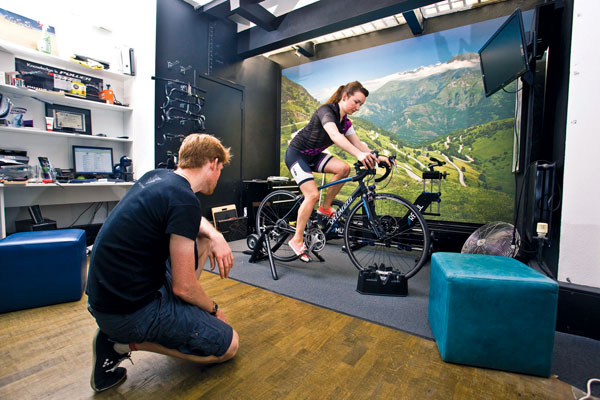
An expert eye on pedalling technique
Bespoke Cycling
A bike-fit at Bespoke Cycling costs £200, fully refundable on bike purchases over £2,500 when purchased within three months of the fit. For purchases of under £2,500, 50 per cent will be refunded.
www.bespokecycling.com 020 7837 0647
This article was first published in the August 15 issue of Cycling Weekly. Read Cycling Weekly magazine on the day of release where ever you are in the world International digital edition, UK digital edition. And if you like us, rate us!

Thank you for reading 20 articles this month* Join now for unlimited access
Enjoy your first month for just £1 / $1 / €1
*Read 5 free articles per month without a subscription

Join now for unlimited access
Try first month for just £1 / $1 / €1
Founded in 1891, Cycling Weekly and its team of expert journalists brings cyclists in-depth reviews, extensive coverage of both professional and domestic racing, as well as fitness advice and 'brew a cuppa and put your feet up' features. Cycling Weekly serves its audience across a range of platforms, from good old-fashioned print to online journalism, and video.
-
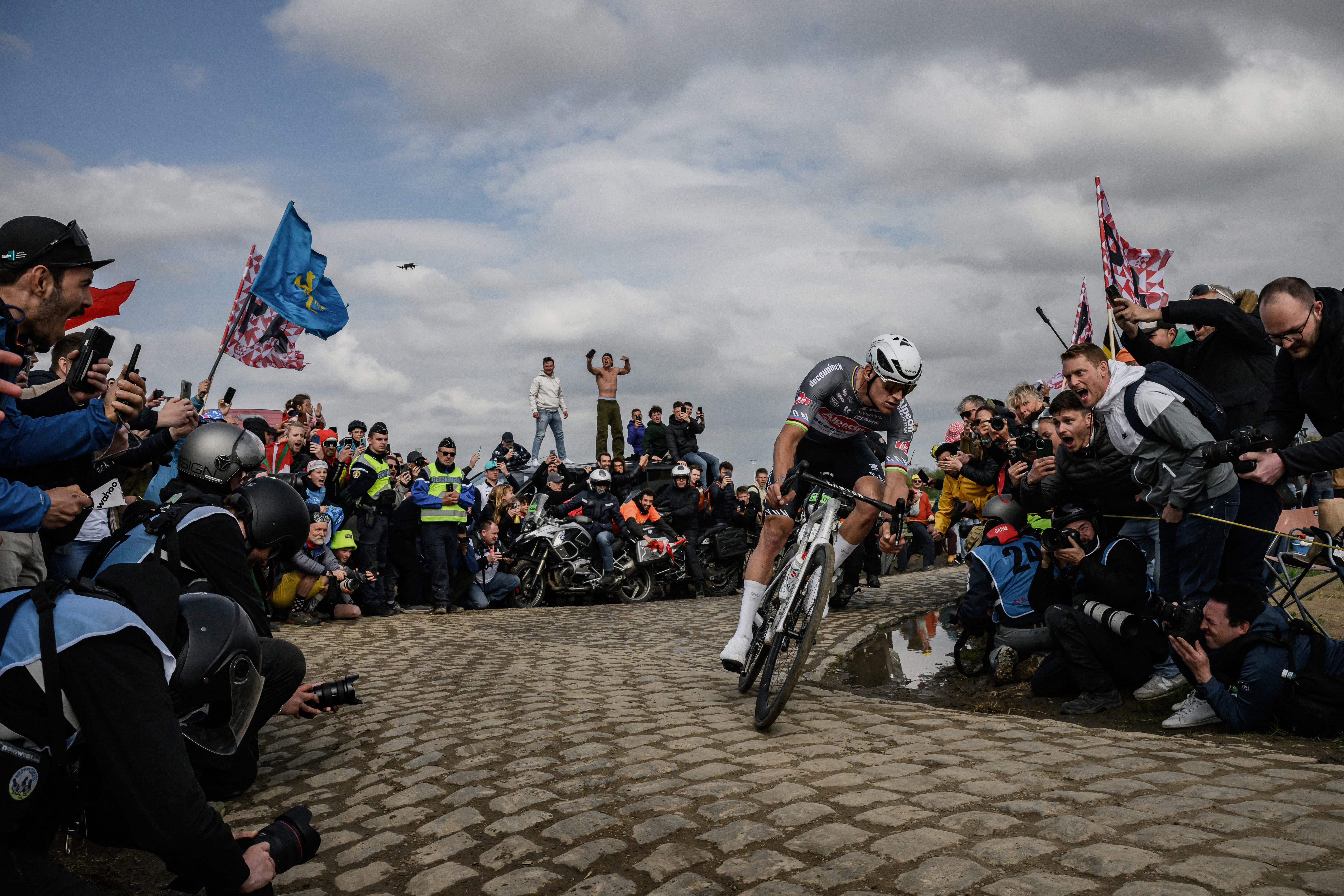 'I have been ashamed for days' - Man who threw bottle at Mathieu van der Poel at Paris-Roubaix apologises
'I have been ashamed for days' - Man who threw bottle at Mathieu van der Poel at Paris-Roubaix apologisesIn a letter to Belgian newspaper Het Laatste Nieuws, the assailant apologised for his action on Sunday
By Adam Becket
-
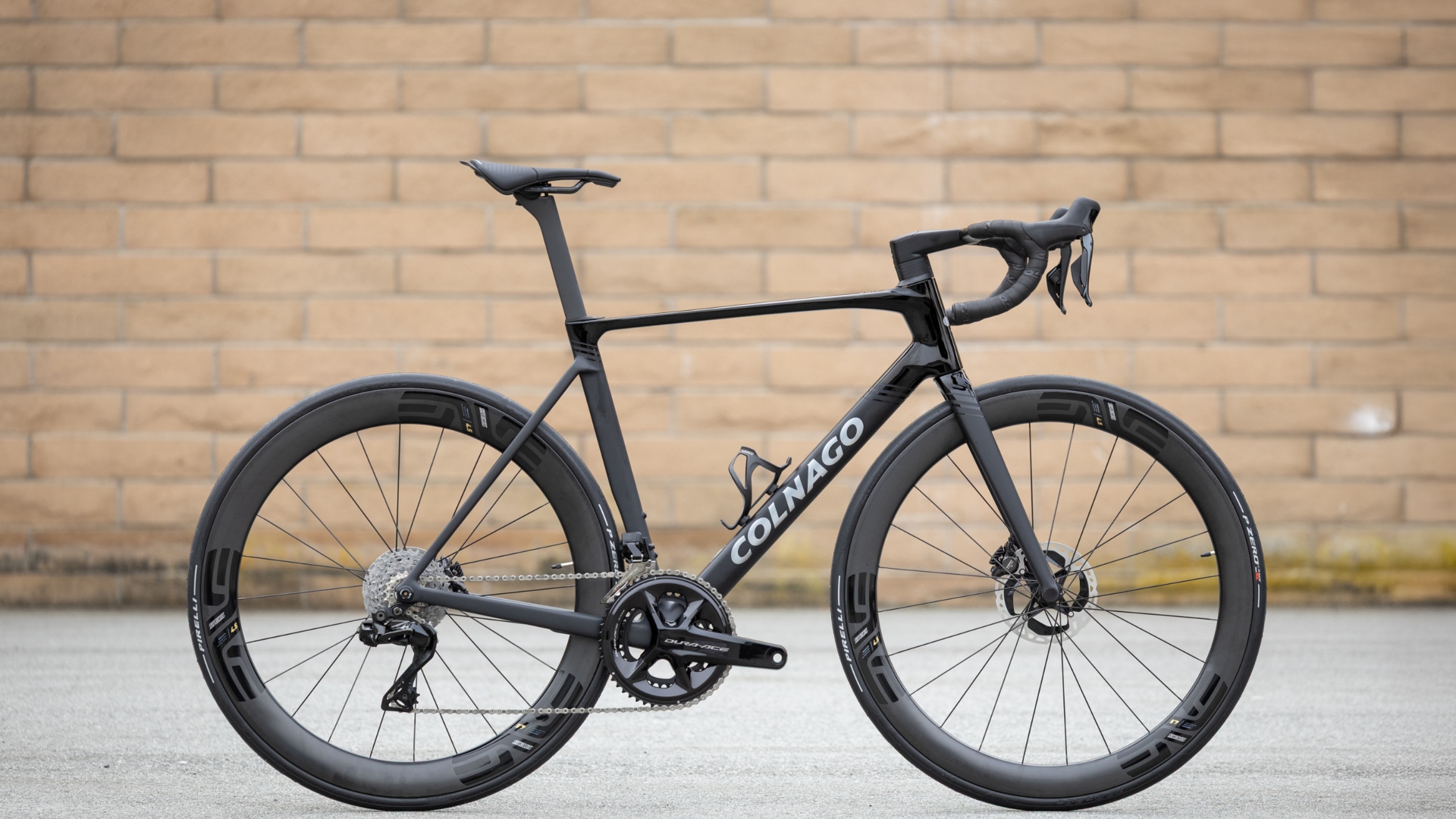 Meet Tadej Pogačar's new weapon: Colnago’s lightest frame ever — the all-new V5Rs
Meet Tadej Pogačar's new weapon: Colnago’s lightest frame ever — the all-new V5RsParis-Roubaix was the last hoorah on Colnago’s winnigest bike, the V4RS. Enter the new V5Rs, to be raced from the Amstel Gold Race onward
By Anne-Marije Rook